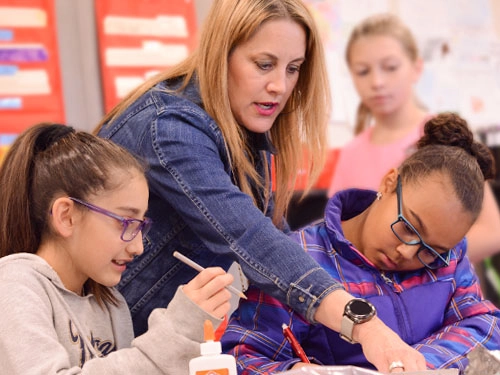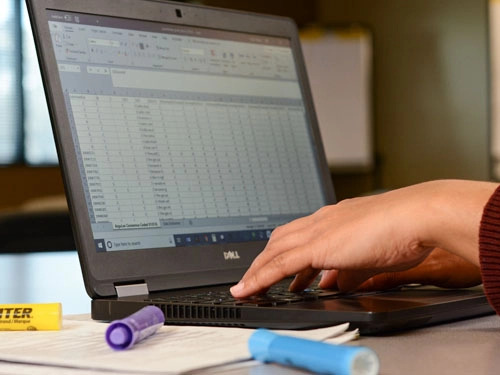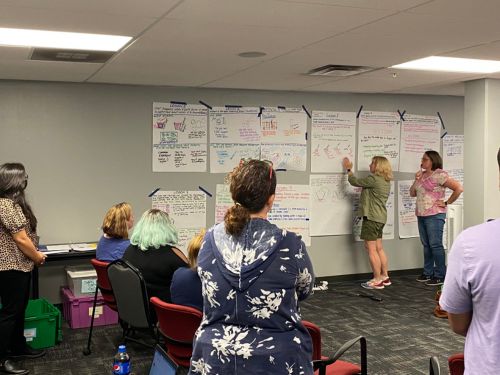What We Do
At BSCS Science Learning, we are working toward a world where everyone is inspired and prepared to use science to build a better future. In this world, each individual will have an understanding of science they can use to thrive in their personal life, care for their communities, and contribute to efforts to protect our shared planet.
To get there, all young people need opportunities to experience science learning that engages their curiosities and builds a foundational understanding of how our interconnected world works. That’s where we come in. BSCS is on a mission to transform science teaching and learning.
The transformation we seek will have two important outcomes for learners…

Science for Life
Since our founding in 1958, BSCS has been driven by the recognition that understanding science and how to “do science” is critically important for members of our society. Over the years our views on what it means to understand science and do science have changed, as have our views about why it is important. Today, we seek to provide all young people with science learning opportunities that prepare them to use science across their personal, professional, and civic lives.

Social & Environmental Justice
Historically, science educators have shied away from placing different values on different uses of science. However, we are concerned that by doing so, we can miss the opportunity to use science to address injustice. We are committed to the goal of inspiring and preparing students to use science as a force for good in the world. Therefore, we are conducting research and development explicitly targeting social and environmental justice outcomes—so that all learners receive the tools to figure out, explain, and act in service of the ecological, physical, and social world, using science.
As we pursue these outcomes, we are focused on how and where we innovate for impact…
Equitable Impact
We’ve been producing effective science education programs for 65 years. But our programs have not always reached the educators and learners who need them most. We must think about how we approach our work, who we are working alongside, and where the impact is needed most. So that’s exactly what we’re doing. We’ve made a commitment to historically marginalized, underserved communities—so that all educators and learners have access to high quality science education programs.

Research-Driven Innovation
We have big aspirations for the future of science teaching and learning. How do we know what to do and determine that we’re making an impact along the way? All of our work is grounded in research. We understand that to create the most effective programs for a variety of contexts, we need to bring diverse teams together to continuously develop, test, learn, and refine. So we are committed to an ongoing process of research and innovation—which happens in close collaboration with the very educators and learners we most wish to support.

Our research-driven work is focused on two areas that are critical to transforming science teaching and learning …
Resources for Science Teaching and Learning
High quality resources are the foundation for transformative science teaching and learning experiences. But what do high quality resources really look like in practice? In schools, they can be instructional materials that enable teachers to engage students’ curiosities and lift up their ideas. In other settings, they can be resources that encourage learners to design their own investigations around interesting phenomena, make connections, and figure things out. A defining characteristic of high quality materials is that they can help create environments where learners are motivated to understand and use science throughout their lives and careers. We are committed to translating our research into high quality resources for science teaching and learning—because these resources are among the most powerful tools for change in both formal and informal settings.
Examples of this work:

Professional Learning for Educators and Educational Leaders
If resources are the foundation for transformative science teaching and learning experiences, educators are the architects. Educators have the power to make science inspiring and meaningful for all learners. However, they face many challenges and need continued education and support to do their best work. All educators deserve access to immersive professional learning experiences that dramatically improve science teaching and learning. They also deserve to work within educational systems that are set up for lasting impact. We are committed to translating our research into high quality professional learning experiences for educators and leaders—because at the end of the day, all kids deserve the world’s best science teachers.
Examples of this work:
